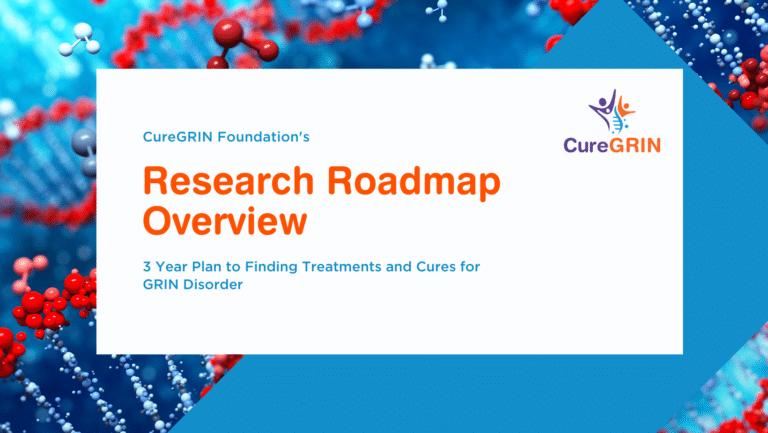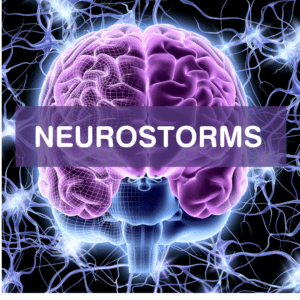Roadmap Overview
Share This Post

CureGRIN’s three-year plan focuses on 10 essential research questions that need to be answered in order to find cures and treatments for people living with GRIN Disorder.
Based on input from over 200 families, physicians and researchers, the plan outlines how we’ll work collaboratively with families, researchers, doctors, and industry to explore gene therapy and drugs as potential treatments.
We’ve titled the plan “Treat the Symptoms; Cure the Disease” to reflect input from GRIN families that we should balance efforts to find a cure, with research into symptom-specific treatments that can provide relief over the shorter term.
10 Essential Questions
We’ve identified 10 essential questions that will define what research projects we invest in over the next three years. We hope the questions will also influence how researchers, biotechnology companies, and other GRIN advocacy organizations prioritize their own work.
The 10 Essential Questions are:
1. What are the right outcome measures?
-How do we measure symptoms pre- and post-treatment?
-Are there ways that GRIN Disorder changes blood or another biological functions that will be reversed with treatments / cures?
3. Is a cure possible at any age?
-Only for young children or teens and adults too?
4. What’s the best delivery route for gene therapy?
-e.g., Spinal Cord? Specific region of brain?
5. How can we deliver gene therapies for larger genes?
-Larger genes can be more difficult for gene therapy
6. What are optimal drugs and molecules targeting NMDARs and related ion receptors?
-Can drugs bring GRIN-related receptors into balance?
7. Are there approved or late-stage drugs that could be repurposed for GRIN and related GRI Disorders?
-Could there be drugs out there already that will help?
8. Which symptoms are due to receptors outside of the brain? -GRIN genes are expressed in gut, lungs, nervous system, etc.
9. Can we improve symptoms by targeting downstream?
-e.g., oxidative stress, neuroinflammation, nutrient sensing, etc.
10. What are the functional and phenotypic details for each variant?
-Functional analysis and natural history by gene and variant
You can find more information on each of these in the plan. We’re also publishing 10 posts that will explain these posts in more detail. We will link to these posts above and they are published.
GRIN Research Audit
As part of this initiative, CureGRIN’s research coordinator Meagan Collins put together an extensive audit summarizing hundreds of research reports to show everything that we know so far about GRIN genes, NMDA Receptors and GRIN Disorder. You can view and download a copy here.
All GRI Genes in Scope
GRIN Disorder is part of a larger family of GRI Disorders that include GRIN, GRIA, GRIK and GRID genes. We are including all GRI Disorders in our Research Roadmap. GRI stands for Glutamate Receptor Ionotropic. These are ligand-gated ion channels that are activated by the neurotransmitter glutamate.
We Need Your Help
We’re trying to answer these 10 essential questions by April 30, 2024.
But following our roadmap to a cure won’t come easy. Reaching our goal is going to cost millions of dollars.
Families are crucial in helping to achieve our goals.
We have several fundraising opportunities for you to take part in the path for a cure.
Get Moving for GRIN: During the month of July, we invite you to participate in this distance challenge.
Count Me GRIN 365: Our popular campaign is available year-round.
Facebook Fundraiser: Truly the easiest way to raise support for GRIN Disorder.
Check out our recently updated Fundraiser Toolkit for more funs ideas on how you can support CureGRIN’s Roadmap for a Cure. You will also find helpful sample email/letters, social media posts, and more.
Set up your fundraiser today and stay tuned for an email from CureGRIN’s President, Denise Rehner, on how you can qualify for a grand prize you will not want to miss!
Read more Posts

GRI University Part 2, GRI Biology and Functional Analysis March 26
Educational primer for the April 2022 virtual GRI Conference

Neurostorms
Several parents in the GRIN community have reported specific non-epileptic events in their children.
